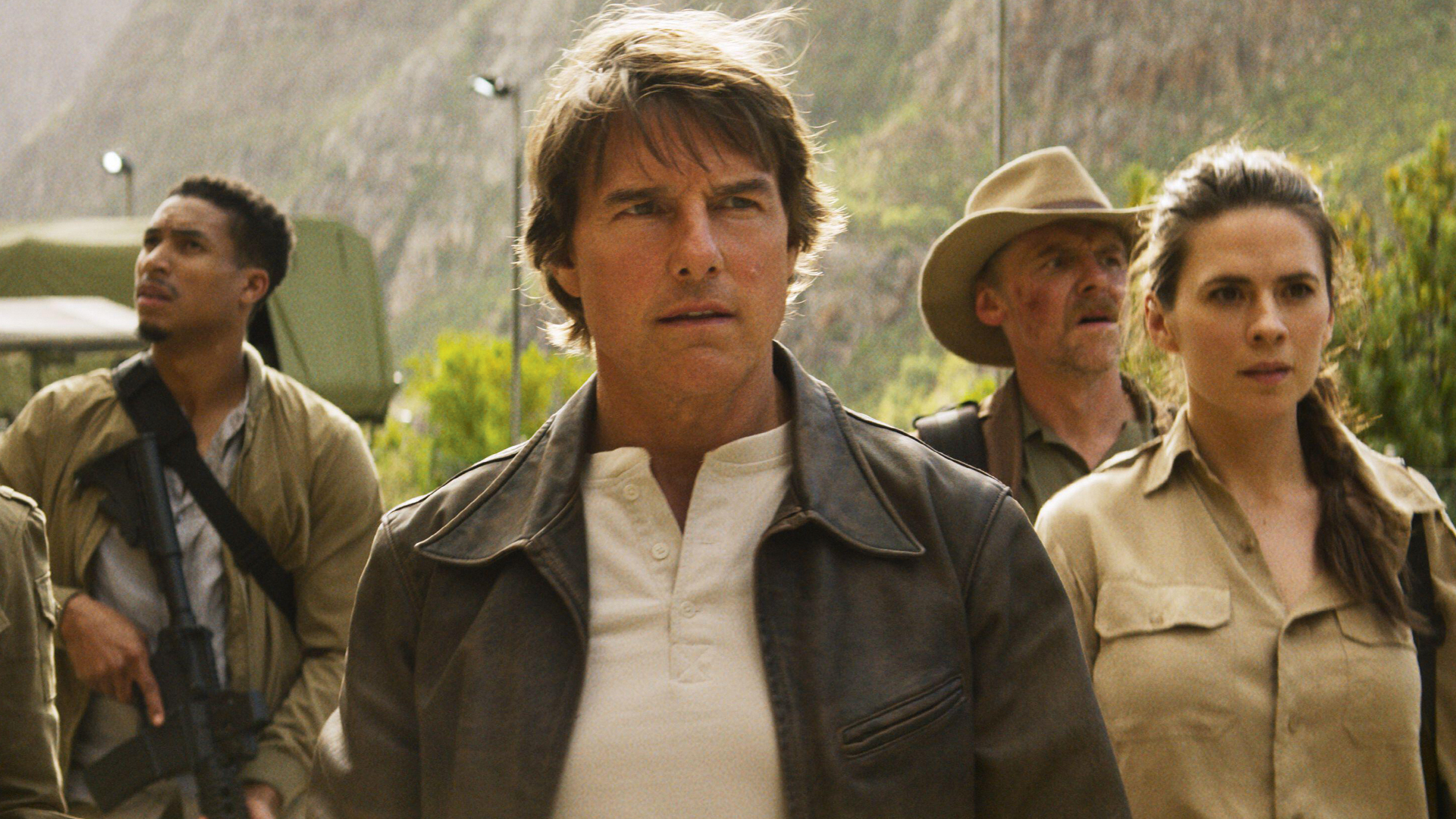There used to be a running joke about the Mission: Impossible movies (apart from Tom Cruise doing a big run in every instalment). This was the franchise most likely to one day kill its star. As the signature stunts kept getting bigger, and the hands-on Cruise crinkled into his 40s, 50s and now 60s, it seemed as if blockbuster one-upmanship, personal thrill-seeking and Hollywood hubris would collide in some horrible calamity.
It was all too easy to imagine the tributes: “At least Tom left us doing what he loved… pretending to defuse an actual intercontinental ballistic missile in mid-air”.
Get the latest news and insight into how the Big Issue magazine is made by signing up for the Inside Big Issue newsletter
Good news, then. Unless something goes badly awry on the international red carpets for Mission: Impossible – The Final Reckoning, Cruise has made it through his eighth and probably last mission in one piece. It’s a miracle! Or perhaps we all got a little too caught up in the PR hype about an indefatigable perfectionist insisting he do all the daredevil stunts ‘for real’. (In his defence, Cruise has surely logged enough hours in a bungee harness to be considered an experienced stuntman.)
The real miracle is Mission: Impossible itself, a cinematic brand purpose-built to exalt its star. The initial 1996 film was the first fruit of Cruise/Wagner Productions, a company set up by Cruise and his then agent Paula Wagner to give the A-lister more behind-the-scenes control over an already successful screen career. Despite that calculated, arguably vainglorious origin the series has managed to endure 30 turbulent years of shifting audience tastes. While Cruise’s headlong agent Ethan Hunt will never have quite the same name recognition of Bond-James-Bond, the M:I films remained fleet and fun while Daniel Craig’s 007 era became a rather self-serious trudge.
What’s the secret? With the benefit of hindsight, it feels like the durable blueprint of the original TV series jigsawed sweetly with the time-pressured, often haphazard reality of big-budget filmmaking. The M:I movies can always justifiably get their exposition out of the way early in the form of the notorious self-destructing briefing tape. And when the initial mission plan goes out the window, Ethan making it up as he goes along fits with the heightened world of espionage, where reality is always shifting under your feet. Lalo Schifrin wrote the irresistible M:I theme in the eccentric time signature of 5/4 rather than boring old 4/4, and the movies have always had a little extra skip in their step.









